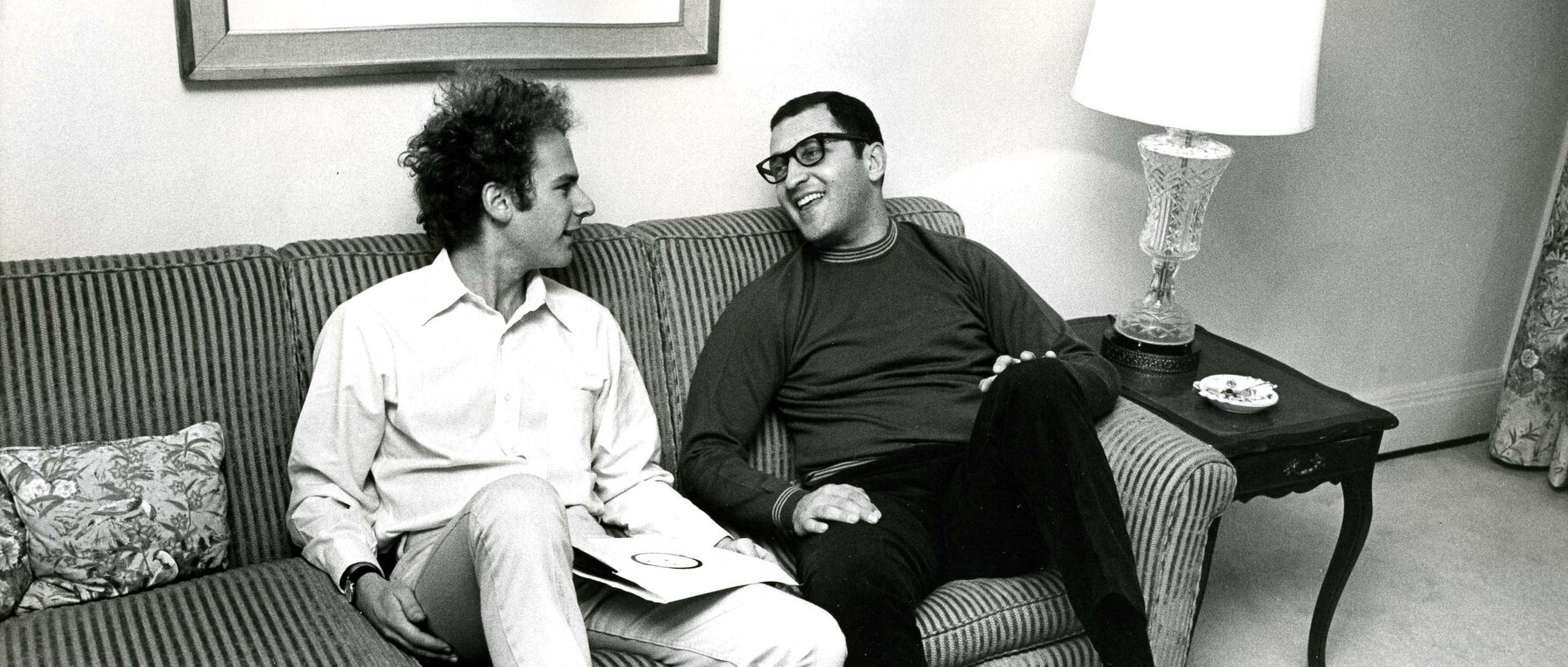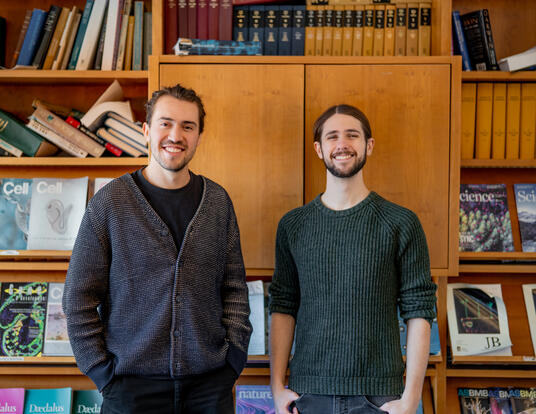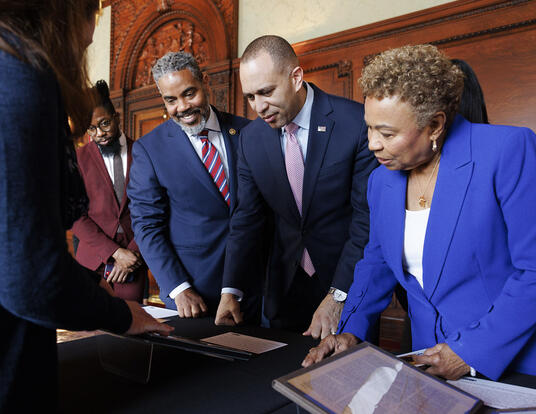Darkness, My Old Friend
Greenberg overcomes blindness to find success in business—and life

In 1961, Sanford Greenberg was halfway through his junior year at Columbia University when misdiagnosed glaucoma claimed his sight and seemed to foreclose on a promising future. “I went from having 20/20 vision while pitching in a baseball game the previous summer to 0/0 by January,” he says. “I went back home to Buffalo. A social worker came to see me and said, ‘Now that you’re blind, you have the following career choices. You can make screwdrivers. You can cane chairs. Or you can become a justice of the peace.’ That’s when I decided I was going to try to educate myself in government, business, law, and finance, so that if my eyes were gone, at least I’d have my brain to work in different fields.”
Determination, though, is one thing; execution another. Greenberg might never have completed his undergraduate degree if his roommate—singer-songwriter Art Garfunkel— hadn’t shown up on his doorstep that spring to insist Greenberg return to Columbia and promised to be his bridge over troubled water when he did.
“Arthur said, ‘You must come back, Sanford. Darkness,’ as he took to calling himself, ‘is going to read to you,’” Greenberg recalls. “He became one of the many extraordinary human beings who took an hour or two away from studying or dating or resting at Columbia to read to a blind student.”
In that way, Greenberg finished his BA, graduating Phi Beta Kappa and as class president. Greenberg says everybody believed he wouldn’t make it in a major grad school. He remembers them saying, “It’s not in the cards for you.” And yet, Greenberg got into several and chose Harvard because “in those days, as I think is still the case today, it has the best government department in the nation. And I felt if I knew the details of how societies are governed, perhaps I could do something constructive in the commonweal.”
“Constructive” is an understatement. In the next few years, Greenberg would earn his PhD in government from Harvard, attend Harvard Law School, and return to Columbia for an MBA while also attending Oxford University as a Marshall Scholar. Along the way, he invented technology that compressed speech without distorting it, the analog forerunner of today’s MP3 format.
I felt if I knew the details of how societies are governed, perhaps I could do something constructive in the commonweal.
In the years since, Greenberg has mixed multiple entrepreneurial endeavors with philanthropic outreach and public service. He started a company eventually worth $80 million, helped renovate Ford’s Theatre in Washington, DC, worked on US–China relations, served on the National Science Board under Bill Clinton, wrote a book about his life and his relationship with Garfunkel, and much more.
In 2012, Greenberg and his wife, Sue, created the Greenberg Prize, which awards $3 million to scientists who contribute the most to the cause of ending blindness. In 2020, he and Sue distributed the prize among 13 researchers, following that up with the creation of the Sanford and Susan Center to End Blindness, which is affiliated with the world-renowned Johns Hopkins Wilmer Eye Institute, where Greenberg has served as board chairman for many years.
“For Sandy, light truly emerged from darkness,” says Richard Axel, a Columbia University professor and Nobel laureate.
“If you don’t have the capacity to marvel every morning when you wake up,” Greenberg says simply, “you are losing the magic of this life.”
October is National Blindness Awareness Month. Visit the website of the National Federation of the Blind to learn more about resources, programs, and services.
In May 2023, Sanford Greenberg was awarded the Harvard Kenneth C. Griffin Graduate School of Arts and Science’s highest honor: the Centennial Medal. Read more about the award—and this year’s other remarkable honorees.
Get the Latest Updates
Join Our Newsletter
Subscribe to Colloquy Podcast
Simplecast




